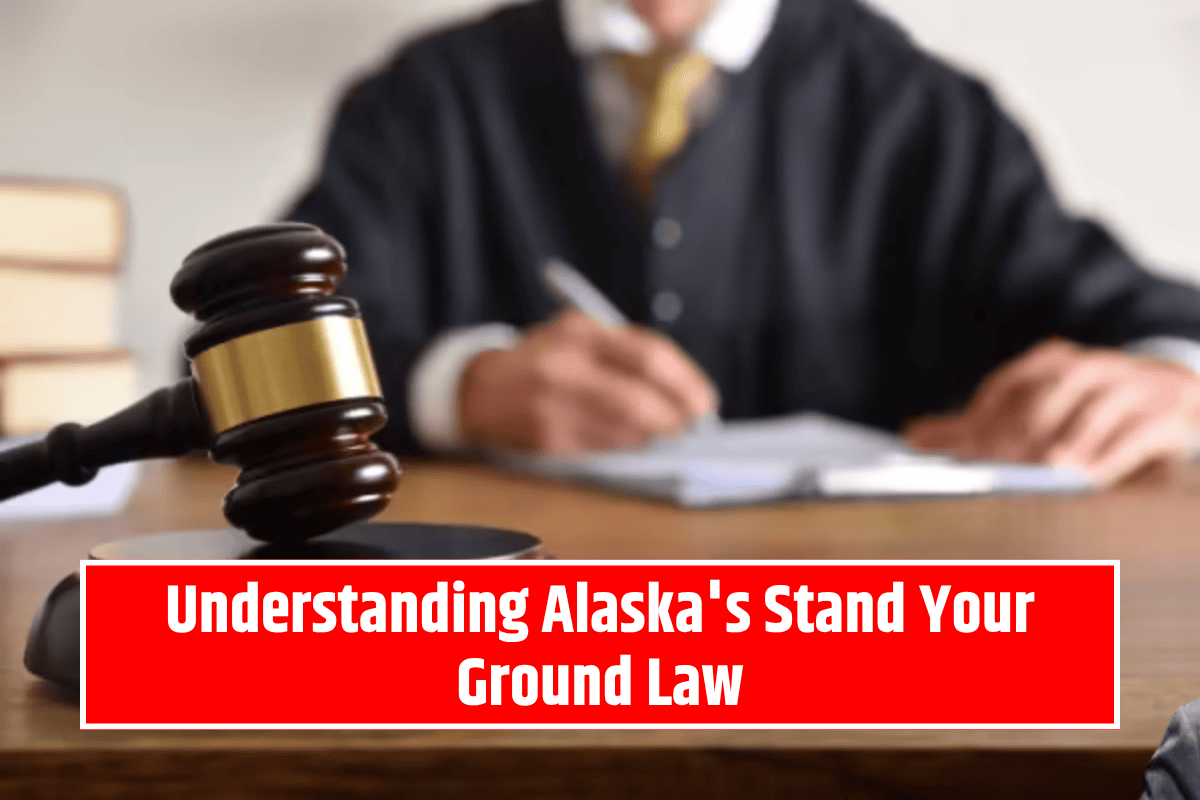Alaska’s Stand Your Ground law, like similar laws in other states, allows individuals to use force, including deadly force, to defend themselves when they feel threatened. The law removes the duty to retreat, meaning a person can stand their ground and defend themselves in certain situations, even if they could have safely retreated from the danger.
This law has sparked debates about self-defense rights and the limits of using force in life-threatening situations. Let’s break down how Alaska’s Stand Your Ground law works, what it means for residents, and its implications.
What is Alaska’s Stand Your Ground Law?
Alaska’s Stand Your Ground law, passed in 2006, is a self-defense statute that gives individuals the right to use force when they believe it is necessary to protect themselves from imminent harm. The law explicitly allows individuals to defend themselves without the obligation to retreat, even if they are in a public place or their own home.
Under this law, you do not have to retreat if you’re faced with an immediate threat, as long as you’re not the aggressor and the use of force is proportionate to the threat.
Key Points of Alaska’s Stand Your Ground Law
- No Duty to Retreat
One of the core principles of Alaska’s Stand Your Ground law is that you do not have to retreat from a dangerous situation if you believe you are in imminent danger. Whether you’re at home, in your car, or in public, if you are threatened, you are not legally required to attempt to flee before defending yourself. - Reasonable Belief of Threat
To legally justify the use of force, you must reasonably believe that you are in immediate danger of death or serious injury. The threat must be real and immediate, and your response must be proportionate to that threat. - Use of Deadly Force
The law allows for the use of deadly force, but only under specific circumstances:- If you believe that using deadly force is necessary to prevent serious injury or death.
- If the person using force is not the aggressor in the situation.
- If the force used is reasonable given the circumstances.
- Immunity from Prosecution
Under Alaska’s Stand Your Ground law, individuals who lawfully defend themselves under the terms of the law may be immune from criminal prosecution or civil lawsuits. This immunity protects people who use force in self-defense from facing charges, as long as the use of force was deemed justifiable. - Not Applicable in All Situations
Stand Your Ground does not give people carte blanche to use force in every confrontation. The law does not protect those who start or escalate violence. If you provoke an altercation or threaten others without being in immediate danger, the law does not justify your use of force.
When Does the Stand Your Ground Law Apply?
The Stand Your Ground law applies in various situations where individuals feel threatened, including:
- Home Defense: If someone breaks into your home or threatens you in your residence, you have the right to defend yourself without retreating.
- Public Spaces: If you are in a public place and a threat arises, you are not required to run away. Instead, you may use force if you feel your life or safety is at risk.
- In Your Vehicle: If someone approaches you in a threatening manner while you’re in your car, you can use force to defend yourself, provided you believe it’s necessary to protect your safety.
Important Considerations
- Aggressor Exception: If you are the aggressor in the situation—meaning you provoke the conflict or escalate it—you cannot invoke the Stand Your Ground law to justify the use of force.
- Use of Non-Deadly Force: The law also applies to non-deadly force if you feel that the situation calls for it, like using pepper spray or a non-lethal weapon in self-defense.
- Imminent Threat: The threat must be immediate and real. If someone verbally threatens you without any further escalation or ability to carry out the threat, it may not justify the use of force.
Controversy and Debate
Alaska’s Stand Your Ground law, like those in other states, has been controversial. Critics argue that such laws can lead to unnecessary violence, particularly in situations where de-escalation or retreat might have prevented a deadly confrontation.
There have been concerns about racial disparities and how the law is applied, with some suggesting that individuals in certain demographics may be more likely to be involved in violent encounters under this law.
On the other hand, proponents argue that the law is essential for protecting people’s right to defend themselves. They believe it upholds personal safety and freedom, allowing individuals to stand up to threats without fear of legal repercussions if their actions are justified.
Alaska’s Stand Your Ground law provides individuals with the legal right to defend themselves without the obligation to retreat, even in public spaces or their own homes. While it strengthens self-defense rights, it also has its limitations and must be applied with caution.
The law only justifies the use of force when there is a reasonable belief of imminent danger, and it doesn’t apply to situations where someone is the aggressor. As with all self-defense laws, it’s important to understand the nuances of the law and ensure that actions taken are legally justified to avoid unnecessary violence.
